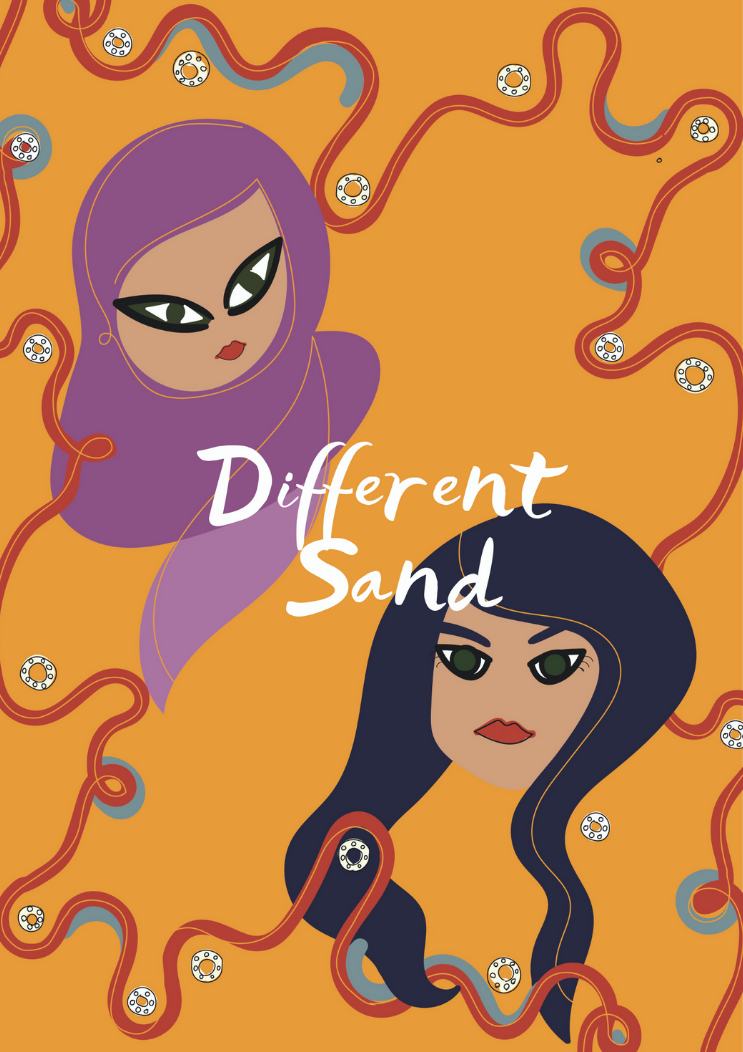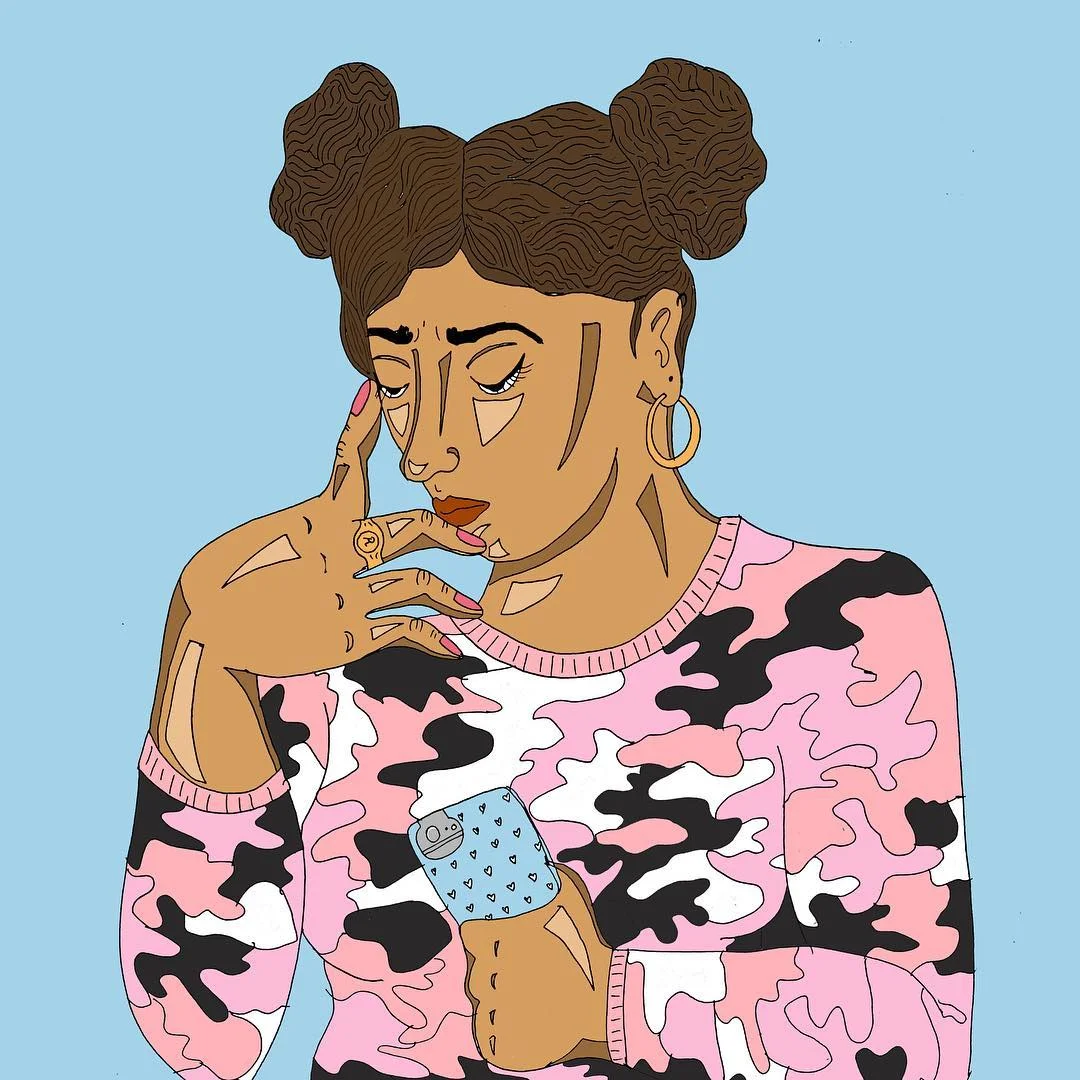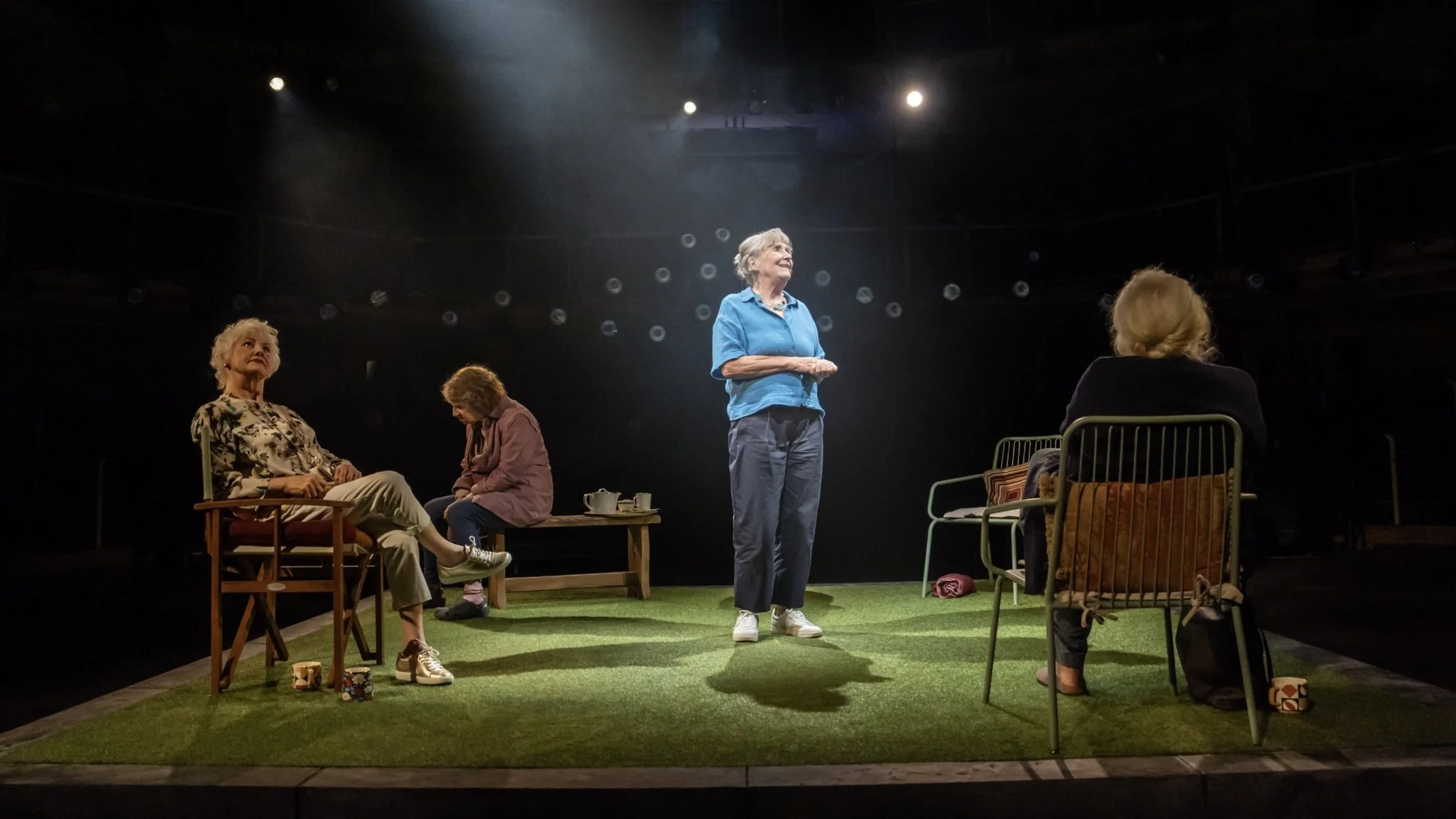Lemon House Theatre: shaking up the theatre landscape
Jen and Samia – aka Lemon House Theatre – met two years ago working for a site called the London playwrights blog. When Jen moved to London and, in her own words “harassed Samia to be my friend” they started writing together.
Both having very strong backgrounds in writing for the theatre, as well as a similar view of the theatre they like – that which celebrates its liveness and the fact there is an audience there – meant a perfect partnership was born. Their passion for theatre is palpable from the moment I meet them, as is their chemistry; these are two funny, smart and hugely supportive women. We touch on everything from Donald Trump to cultural loneliness, and why theatre doesn’t always have to change minds…
HARPY Tell me about yourselves – how did Lemon House form?
SAMIA We both shared an appreciation for a lack of the stories we wanted to see. I grew up working class on a council estate and I’m half Algerian and that’s not a common thing to see on stage. So we thought, let’s just do it ourselves!
JEN In any arts you always seem to be waiting for permission to make something… so we thought, we’ll just do it.
Lemon House Theatre was officially set up at the end of last year. Their first event was in July 2019 and was called Mixed Tape– a night of short pieces produced all by people who identified as mixed race.
Their two plays at The Bunker in South London – Different Sand and Willow – are their first full-length productions.
HARPY Why are you called Lemon House?
JEN As we have two artistic directors it’s therefore a very collaborative company and this extends to our whole approach. We wanted it to be like a home but that sounds weird! So we went for house. We want it to be a place where artists can come and try things they’ve not done before.
SAMIA Sometimes theatre can feel a little bit elitist, so the idea was that we could create somewhere where everyone, no matter what you look like, your income or your social background, was welcome. Although no Donald Trumps!
JEN The lemon bit was because theatre can take itself too seriously. We wanted something fun and vibrant and playful. We also discovered lemon is slang term for lesbian –
SAMIA - and on a different note, sometimes in Algerian households, when you break your fast during Ramadan you have Algerian lemonade.
JEN So it’s kind of accidentally perfect!
—
HARPY You mention that you think theatre can take itself too seriously – can you expand on that?
SAMIA If you look at the canon of theatre and where it started, it was very male, white and middle to upper class led. Theatre that conforms to this takes itself seriously. But you want to know if you go to the theatre you can relate. Some people don’t like that word – but I do! If you think about it, if you see 1000 things you can relate to, but the rest of us only have 2 or 3, then of course you don’t like the word – but the rest of us love it! Also traditionally there can be quite a divide between audience and the stage – but our tagline is creating conversations between artists and audience, as we want to celebrate the role of the audience.
JEN I only saw my first play that had queer woman in in the last two years. It was so great because it was sad and dark and wasn’t like ‘oh it’s amazing to be gay!’. I don’t think there should be a duty to portray being queer in a certain way. There shouldn’t be a duty of representation.
—
HARPY Do you feel this duty of representation?
JEN Different Sand is the first all-female Algerian play in London - there’s never been a play with a full core team of Algerian descent!
SAMIA On the one hand that’s so cool and exciting and I get to be in a room with all these creatives who share my cultural experience. But then I think why do I not have at least three other plays in the mainstream that I can go to? I’ve seen a lot of theatre and I work in theatre and only the other day I saw an Algerian play – and their production team wasn’t Algerian, just the performer. You do feel a bit of a burden, and then you think where are my stories? You feel a bit of a loss because you want to see more, and you hope there are more. From this [her play] I want to see all the Algerians popping up and creating their work and sharing their stories.
JEN You’re told as a writer that you learn from reading and seeing plays but when your plays don’t exist it’s hard to be a writer because you don’t have the source material. The pressure is then more because you’re also creating that material now.
—
HARPY How and why did these plays come about?
SAMIA They both had very similar births. When we started the company we put together an action plan; we wanted to champion other writers but also do our own stuff. We had the ideas already and we helped each other to complete them.
Different Sand – written by Samia – follows British-Algerian sisters Amira and Linda, who live day-in-day out in their dingy North-London flat, whilst trying to match the needs of their Algerian father. Career driven Amira prays five times a day, takes care of the house and pays the bills, whilst Linda is busy partying and pulling pints at the local pub. When Amira decides it’s time for her to get married, the sisters battle over what’s going to happen next, and who they really are.
Willow – written by Jen - sees protagonist Gabi chat to the audience about her break-up with girlfriend Lottie, adopting different formats from a game-show style to a Ted Talk to also seeing scenes from Gabi and Lottie’s relationship play out. Willow asks how do we tell our own stories, looking at how being certain and being truthful aren’t always the same thing, and what happens when someone you love doesn’t play the part you expect.
JEN I really wanted the two characters in Willow to be gay, but I wanted that to not be a big deal. One time I wrote a play and was told I needed to make the gay character come out, and I did. So I also wanted to make up for that time that I caved.
—
HARPY Tell me about your writing process, especially your rehearsed readings
Lemon House practice rehearse readings as part of their writing process. They do this as they want the audience to have authority. They also do Q&As about their shows after the performances.
JEN A play isn’t complete until an audience is there, so it seems odd to bring them in at the end – they become almost like an afterthought. Your play is so dependent on the audience and they change every night. Doing the readings allows you to see the peaks and see what happens in it, see what jokes work and don’t work.
SAMIA We did the readings for free in a box room – though of course if you can do that as a writer, you’re in an extremely privileged position. I feel now though that it’s really necessary. I was so nervous going in but so glad I did it. I rewrote the whole thing after the rehearsed reading!
JEN A rehearsed reading was always something we wanted to do and once we knew we had The Bunker space for the performances we made sure to fit it in. It was a free event – we invited friends, family, our existing theatre connections and invited on social media.
—
HARPY Why are these plays female-led?
SAMIA I like championing female creatives, there’s still a lot of space in the industry that needs to be claimed by female creatives. It just made sense to me to do that. It’s less about why we did it and more about the fun of sharing your story with another female creative – it’s a very particular thing being able to sit down with a woman and share. I feel like I can express myself completely freely and that has made the whole creative experience much more freeing and fun.
JEN I remember talking to our stage manager Ellen about this who was excited that it’s the first time she’s worked with an all-female team. It’s so nice to hear that from both sides. When we started Lemon House we wanted to give a platform for under-represented creatives in the industry but without being tokenistic. So though these shows are all female (and queer in the case of Willow and Algerian in the case of Different Sand) it’s all happened quite naturally. We didn’t seek out women, we just ended up working with them.
—
HARPY Why were you guys so keen to show at The Bunker?
BOTH We just really like the space!
SAMIA We saw a play there last year and as soon as we went in we thought it was such a cool space. You feel it’s not excluding you in any way.
JEN It’s a converted underground car park. Plus, it has a really nice, cool team of people that work there.
SAMIA Meeting another working-class kid being an artistic director of a theatre company is great, and what he is doing he actually really cares about and isn’t just ticking boxes.
—
HARPY Why should someone see your show?
SAMIA Because IT’S HILARIOUS! (Both laugh). I believe that even if you’re not Algerian, working class, female you can come and see the show and find something in it. Or you can find out more about what it means to be a mixed-race Algerian woman. Also, it’s a story about sisters!
JEN Part of the reason we did it as a double bill is because the plays are related, you will see why we’ve put them together. Women in the home is something that’s often really patronised or really sexist. But women are funniest when they’re with their friends! We are telling honest, authentic stories and hopefully they’ll make you laugh – but we’re not trying to shake the earth.
SAMIA For so long, whenever you’ve seen women in plays they are just in the living room, kitchen, bedroom with nothing to say. But when I’m in those spaces with my friends or my sister we have the most hilarious, deranged, thoughtful conversations! And they are nowhere near what I was sold through art forms growing up.
—
HARPY Why do you think these stories are so relevant and/or important now?
SAMIA If you look at the scope of the western world right now, and you see how queer, Arabic, Muslim, ethnically diverse people are being treated – it’s not human. Our plays are taking the human story and giving these people the right to voice themselves - not just be a picture in a paper by someone who has no idea what they are talking about.
JEN Why shouldn’t the women in our plays have their say? At the moment, it feels like if you are queer, disabled, non-white, you’re being silenced. So it feels like a really small form of rebellion, not shutting these voices down. Today’s news can make you feel like you can’t do anything, but you spending your money on these shows is something – it shows that there’s space for this and we can then take this on to more artists, give them the chance to raise their voices more. Buying a theatre ticket can be an act of rebellion.
—
HARPY Do you think theatre has the power to change minds?
SAMIA I think the more it progresses it could. If you feel theatre is for you and you see it, it makes an impression. The more stories we have and the more theatre is told on a stage and the more accessible it is to everyone the more it has the ability to change minds. Art always has this lesson to it so the more that’s there and the more you see the more it has the power to change your mind in a positive way. But that’s still a slow progress right now.
JEN Art doesn’t have to either change minds or be entertainment, it can be both. Our plays, for example, are kind of inadvertently political.
—
HARPY If an audience member could take away one thing from these plays, what would you want that to be and why?
JEN For the conversation to carry on after you leave the theatre. The best shows I’ve seen are the ones that make you want to talk about them and think about things – say your own sister, an ex – or maybe make you think you want to source out more Algerian work. As long as you leave the theatre and that conversation is carrying on then that’s a success.
SAMIA Cultural loneliness is something I really experienced growing up. One of the reasons I wrote the play was to deal with that. You don’t always know where you fit in. If seeing the play could make you understand what it might feel like to experience being mixed race, or mixed-race Algerian, then that would be cool. And if you’re a mixed-race person seeing this you might walk away thinking you’re not always alone.
—
HARPY Finally, what are Lemon House’s future plans?
JEN Get some sleep! (Laughs). Well we have two strands of the company: artist development and producing full-length shows, so we want to keep working on both of those. Our next artists development will be a scratch night for LGBT history month.
SAMIA Ultimately, we want to carry on making work we actually believe in – even though that might sound cheesy. Work that’s good and funny and topical and that we believe in. If in 20 years-time we had our own space, that would be amazing!
—
Willow and Different Sand are on at The Bunker Theatre on the 8th, 9th, 15th and 16th September. Both shows are on every night; you can watch each show individually or buy a double-bill ticket. Tickets available here.
You can check out Lemon House’s website, or follow them on Twitter, Instagram and Facebook.





